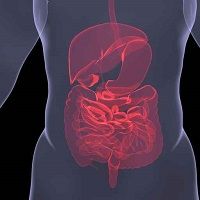Gut Bacteria and Immune Recovery in HIV
Researchers report there is evidence of a correlation between immune recovery and the behavior of a certain subset of gut bacteria in patients with HIV treated with antiretroviral therapy.

Study investigators from the University of Valencia, in Spain, appear to have made findings that could have implications on the development of complementary therapies that target gut bacteria in patients with HIV thereby boosting the efficiency of antiretroviral therapy (ART) and possibly preventing the complications associated with immune deficiency and chronic inflammation. Writing in EBioMedicine, the researchers said “Although, we cannot rule out the possibility that some changes are partially a random consequence of the disease status, our data suggest that most likely reduced inflammation and immune recovery is a joint solution orchestrated by both the active fraction of the gut microbiota and the host.â€
Â
In other words, the team discovered a correlation between immune recovery and the behavior of a certain subset of gut bacteria in response to ART. These changes appear to be accentuated in immunologic responders, with alterations seemingly being both a consequence and a cause of immune recovery.
Â
“HIV patients suffer from persistent immune deficiencies and chronic intestinal inflammation caused, in part, by the very toxins released by the cells to fight off the HIV infection,†said corresponding author, Manuel Ferrer of the Institute of Catalyssi, Consejo Superior de Investigaciones Cientificas, in Madrid. “In this study we have found that, in some patients, certain gut bacteria become activated during ART and begin to amass anti-inflammatory molecules.†In these patients, immune recovery is much better than in that of their peers who have guy bacteria with make-up and behavior that does not lead to the same anti-inflammatory effect.
Â
Â
For the study, Ferrer and colleagues examined the active fraction of the gut microbiome, through examining protein synthesis and accumulation of metabolites inside gut bacteria and in the bloodstream of 8 healthy controls and 29 HIV-infected individuals who were undergoing various intensities of infection control and immune recovery.
Â
HIV infection was found to be associated with dramatic changes in the active set of gut bacteria, simultaneously altering the metabolic outcomes. These effects were accentuated among immunologic ART responders, regardless of their diet, characteristics, clinical variables adise from immune recovery, duration and type of ART, and sexual preferences. “The effect was found at quantitative levels of several molecular agents and active bacteria which were herein identified and whose abundance correlated with HIV immune pathogenesis markers,†added Ferrer and colleagues in their EBioMedicine paper.
Â
Lead author Sergio Serrano-Villar of the Hospital Ramón y Cajal added, “The make-up and behaviour of the gut bacteria of HIV patients whose body responds adequately to antiretrovirals are different to those who respond less well to treatment. It is possible that the reason why some subjects respond better to antiretrovirals is because their immune system is predisposed to these beneficial, recovery-enabling bacteria.â€
Â
The impact of ART on patients with HIV could therefore possibly benefit from the addition of therapies that target this subset of bacteria. “The design of new probiotic foods could be an option, for instance,†said Ferrer.
Related Coverage:
Late HIV Testing Drives Transmission Rates